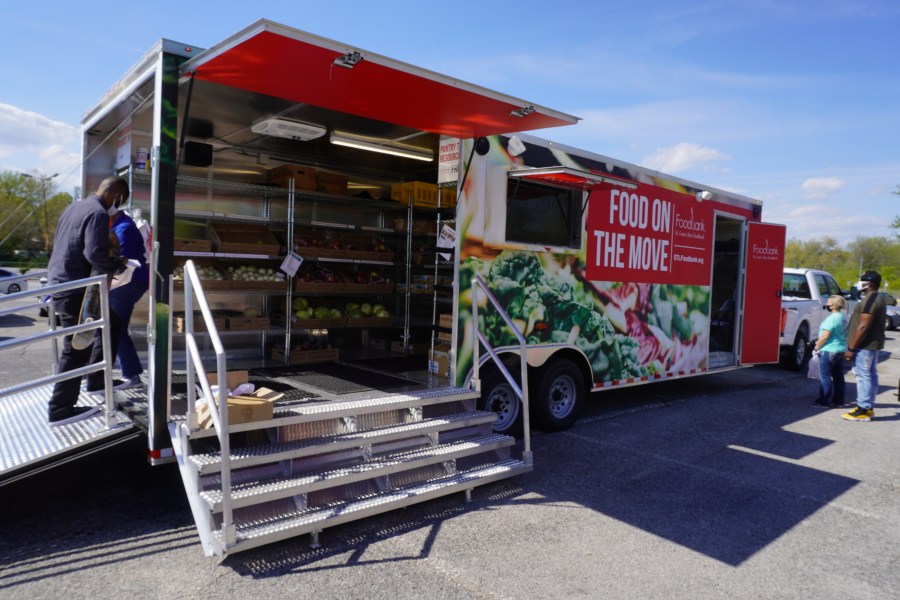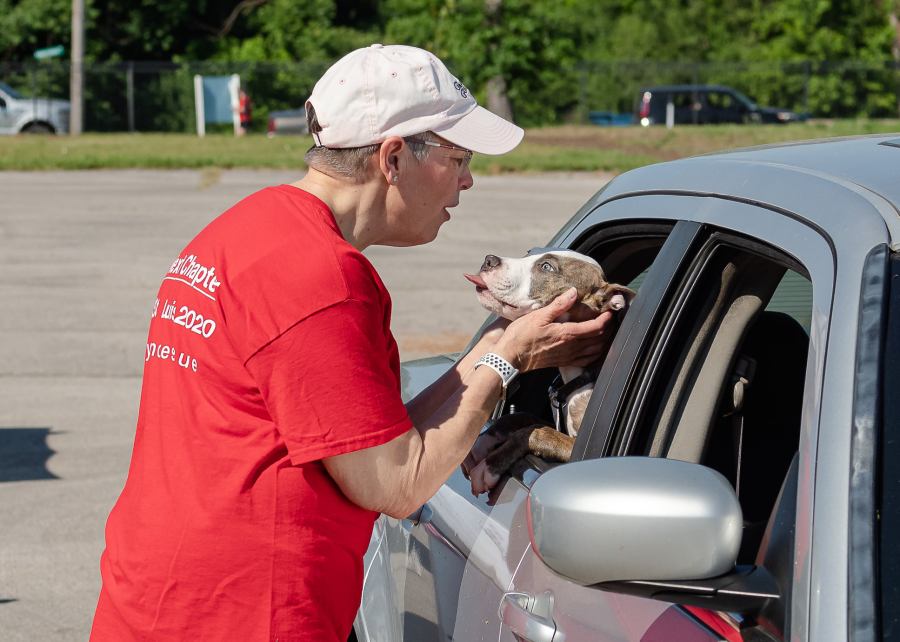More families need pet food pantries as prices rise

Rescue Binx and Gateway Pets volunteer Kelsey stop for a selfie while taking a walk. Courtesy of Gateway Pets.
(NewsNation) — Pet food inflation is outpacing even high human grocery costs, up almost 15% from last year, leading to a growing number of families facing a heartbreaking choice between feeding their pets and paying for their own necessities.
Shelter workers from Maine to Montana say they’re struggling to keep up with the number of pets returned or surrendered because their owners can no longer afford to feed them.
In response, pet food pantries are on the rise. Organizers say these grassroots efforts are a last resort to keep Fido with the family — and they’re needed more than ever.
“One of the main reasons why we do this is because we know that people will feed their pets before they feed themselves,” said Karen Nevotti, strategic programs manager for the Friendship Center Food Pantry. “Pets are part of a family.”
Lately, many of these food pantries are stretching to support as many families as possible.

Nevotti said the Friendship Center in northwest Chicago has doubled the number of pets it has provided food for since July.
“We had served clients that took care of 89 dogs,” she said, adding that they also serve more than 300 cats. “As of last month, that was 160 (dogs).”
Often attached to a human food pantry or animal shelter, pet food pantries work by guaranteeing food each month for a certain number of pets, usually whose owners meet certain financial or geographic requirements. Most take donations of any kind of pet food and are staffed by volunteers.
Financial distress is one of the most common reasons people give up their pets, according to the online pet store Chewy.

Yet people may not know this is an option in their area, which is why Gateway Pets in East St. Louis also has pop-up booths at community events and donates to human food pantries people might be more familiar with.
Gateway Pets also provides free or low-cost medical care — another important need when families are in financial straits.
“As they’re getting in for their preventive care, like a heartworm test or their vaccine, we are ideally stopping any kind of medical complications later down the line that maybe an owner might have trouble affording,” said Katie Anderson, community support and volunteer manager with Gateway.
Meaning fewer animals enter an overcrowded shelter system. And, it keeps humans healthy too.
“We know that there’s a number of positive mental health and physical health indicators for people with pets, in terms of lowering stress and blood pressure,” Anderson said. “It comes with benefits to both sides of the spectrum.”









